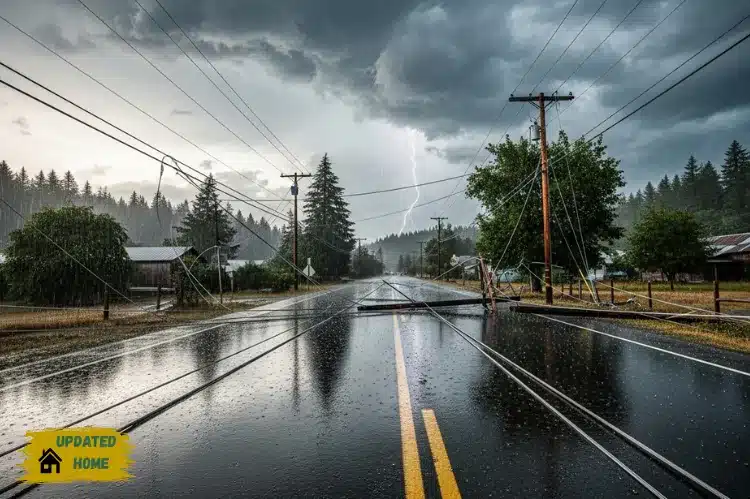In the Pacific Northwest, where the scenery is breathtaking and the seasons dramatic, one thing remains unpredictable: the power grid. From fierce windstorms to relentless winter ice and summer wildfire threats, the electrical supply in cities like Vancouver, Ridgefield, and Portland is more fragile than many homeowners realize. That’s why investing in a backup power system isn’t just smart, it’s essential.
Table of Contents
Power Outages Are Not Rare
Each year, thousands of Pacific Northwest residents lose power due to extreme weather events. In Portland and Ridgefield, ice storms can take down power lines for days. In Vancouver, windstorms are notorious for knocking out transformers and leaving neighborhoods in the dark.
And as wildfire seasons stretch longer, utilities across Oregon and Washington are increasingly opting to cut power proactively to reduce the risk of sparking fires. While these preemptive shutdowns help protect communities, they also leave homes without heat, refrigeration, and critical communication.
What Happens When the Grid Fails?
A few hours without power is inconvenient. A few days is something else entirely. Food spoils in the fridge. Pipes freeze in the winter. Sump pumps stop working. If you rely on medical equipment or work from home, the stakes are even higher.
Backup generators bridge that gap between convenience and crisis. They automatically turn on when the power goes out, supplying your home with electricity until the main service is restored. Whether you’re powering a few critical circuits or your entire house, having backup power gives you control during unpredictable outages.
Why It’s Especially Important in the PNW
Oregon and Washington’s combination of dense forest, aging infrastructure, and rising energy demand creates a perfect storm for power instability. Utility providers in both states like Portland General Electric, Clark Public Utilities, and Pacific Power now follow Public Safety Power Shutoff (PSPS) protocols. These protocols intentionally cut power in high-risk areas during hot, dry, and windy conditions.
For homeowners in places like Ridgefield and rural Clark County, that means an extended outage may not be a question of if, but when. Having a backup generator ensures you’re not caught off guard.
Real-World Examples
- Ridgefield: During last winter’s ice storm, large portions of Ridgefield were without power for over 48 hours. Homes with backup generators maintained heat and stayed connected.
- Portland: In 2021, historic wildfires and power cuts in neighboring counties left many Portland residents suddenly without electricity. Generators became a lifeline.
- Vancouver: High winds earlier this year caused unexpected blackouts across several neighborhoods. Homeowners with whole-home generators kept their freezers running and sump pumps online.
Backup power is no longer just about convenience. It’s about safety, resilience, and preparedness. With climate events increasing in frequency and severity, a generator protects your home from disruption and your family from harm. At Prairie Electric, we install reliable home generators tailored to your home’s size and energy needs so you’re ready, no matter what the forecast holds.
Get in touch with Prairie Electric today to discuss a backup power solution for your home in Vancouver, Ridgefield, or Portland.
Read Next: Essential Safety Tips for Using Generators in Wet Weather




